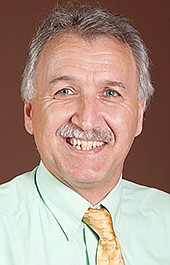One of the most important decisions a cow-calf producer must make is choosing a calving date. This decision must take into account the entire beef production system, environmental conditions, available resources and production and lifestyle goals. Calving season influences when other production events occur, such as peak lactation, rebreeding, weaning and marketing, all of which affect an operation's profitability and efficiency.
Any calving system, regardless of date, should address the relationship between nutritional requirements of beef females and the quality and quantity of available feed. Nutritional status of beef females is influenced by stage of production and the environment, including length of growing season, forage species, day length, topography, forage quality and availability, ambient temperature, annual rainfall and weather extremes.
Periods of growth, gestation and milk production each influence nutrient requirements for the growing and adult female. The relatively high nutritional requirements of cows in late gestation and early lactation can affect subsequent reproductive performance in limited nutritional environments.
Operations with available high quality feed resources and minimal environmental stress can sustain larger cow size and greater levels of milk production for increased economic returns. But under conditions of low feed availability and greater environmental stress, cow size and milk production should be limited.
Most spring-calving production systems have historically marketed cattle in November, resulting in a high calf supply. An increased supply at this time results in a lower price when compared with calf prices in winter or spring. Calves sold at an alternative time to November generally receive a higher price because of decreased supply at weaning and marketing. A higher price received must offset the potential added cost of harvested feeds needed to support an alternative calving system.
BERNI KURZ, COUNTY EXTENSION AGENT STAFF CHAIR, UNIVERSITY OF ARKANSAS DIVISION OF AGRICULTURE COOPERATIVE EXTENSION SERVICE.
Business on 07/20/2016
